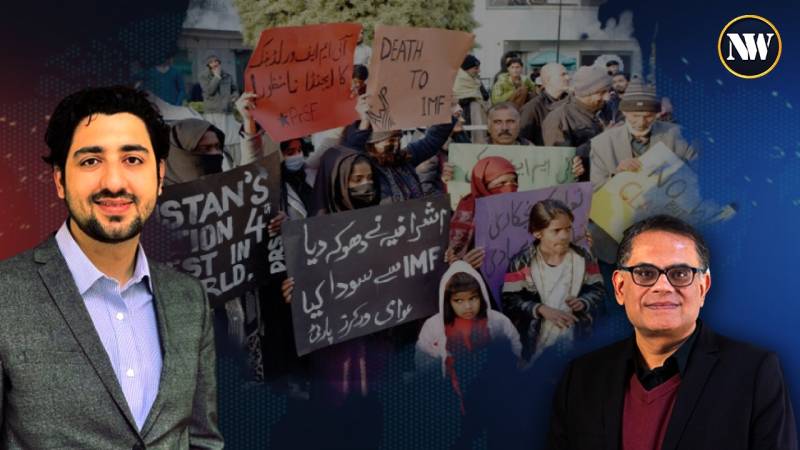Pakistan is currently facing a severe economic meltdown and a crisis of immense proportions. This economic turmoil has affected the lives of its 250 million inhabitants and has generated widespread concerns and protests across the nation. The crisis was exacerbated by the acceptance and implementation of stringent conditions imposed by the International Monetary Fund (IMF), leading to soaring electricity prices and unprecedented social unrest. In this 1000-word article, we will explore the critical issues surrounding Pakistan's economic meltdown, its root causes, and potential paths to recovery.
The economic challenges Pakistan faces today were foreseen by many when the country agreed to the IMF's conditions. The IMF typically imposes these conditions as part of structural adjustment programs or stabilization measures. While the goal is to stabilize a nation's economy and prevent a default on foreign liabilities, the consequences of these policies can be detrimental, especially for ordinary citizens.
One of the most controversial aspects of the IMF agreement in Pakistan was the withdrawal of subsidies on fuel and electricity. This policy had an immediate impact on the cost of living for ordinary Pakistanis. As electricity bills skyrocketed and petrol and diesel prices surged, social unrest erupted from Rawalpindi to Karachi in the south. The crisis seemed to have no end in sight as the IMF's conditions had to be met continually.
Dr. Danish Khan, a professor of political economy and a keen observer of Pakistan's economic landscape, highlighted a crucial aspect of implementing reforms in any economy or society: stability. He emphasized that stability is key to enforcing reforms. However, Pakistan's state and elites have been more cautious about sociocultural changes and less attentive to the economic needs of the population.
The recent protests and social unrest have revealed a lack of economic stability, which is essential for driving necessary reforms. Dr. Khan also noted that this crisis has united people from various segments of society, creating a sense of solidarity rarely seen in Pakistan's recent history. This newfound unity demonstrates the widespread impact of economic challenges, transcending political and party affiliations.
Human Rights Watch (HRW) added its voice to the discussion by requesting the IMF's assistance in upholding Pakistan's right to electricity. HRW emphasized that the Universal Declaration of Human Rights includes everyone's right, without discrimination, to sufficient, reliable, safe, clean, accessible, and affordable electricity. However, the interim government has not shown any inclination to defy the IMF's conditions, focusing instead on negotiations.
Unfortunately, the crisis in Pakistan is not unique; similar protests have erupted in Latin America, Africa, and other parts of Asia in response to IMF programs. The question arises: Why do these programs lead to social unrest and upheavals in developing countries? The root of the problem lies in the IMF's framework, which prioritizes financial stability and debt repayment over broader socioeconomic factors.
The IMF's narrow focus on "accounting and debt management" neglects the complex reality of economic development and the impact of these programs on ordinary citizens. While debt repayment is crucial, it should not come at the expense of the well-being of a nation's population. Dr. Danish Khan argued that Pakistan's policymakers need to think beyond IMF conditions and develop sustainable, long-term reforms.
One of the major challenges contributing to the crisis is the fluctuation in the exchange rate and the rising dollar prices in Pakistan. These factors are closely linked to inflation, which further burdens the population. Dr. Khan emphasized that administrative measures can offer short-term relief, but the long-term solution lies in improving remittances, increasing exports, and attracting foreign direct investments.
The political fallout of this economic crisis is also a pressing concern. With elections on the horizon, Pakistan's political landscape is expected to be heavily impacted. The crisis has exposed the limitations of technocratic governments and the need for stability and coordination among various stakeholders.
To address these challenges and build a path to recovery, Pakistan needs an alternative economic plan. This plan should prioritize high-productivity sectors, job creation, and the welfare of working and middle-class citizens. Dr. Khan emphasized the importance of a coordinated effort among different stakeholders, including businesses, government, labor unions, and civil society. Revisiting existing contracts, such as those related to infrastructure projects, could also be part of the solution. These contracts should be renegotiated to ensure they benefit the broader population rather than a select few.

